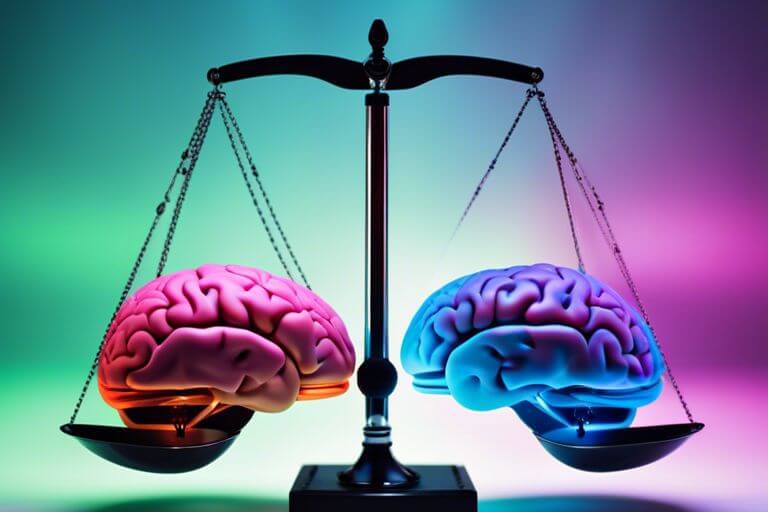The Bipolar-Nicotine Connection: Understanding How Smoking Affects Your Mental Health

There’s no denying the prevalence of smoking in today’s society. Approximately 40 million adults in the United States alone struggle with this addiction.
For individuals with bipolar disorder, the impact of nicotine goes beyond just physical health.
Research has shown that individuals with bipolar disorder who smoke are at a higher risk for mood fluctuations, medication non-compliance, and increased severity of symptoms.
As healthcare providers and smoking cessation counselors, it’s crucial to address the unique challenges faced by individuals with bipolar disorder who smoke.
By understanding the harmful effects of nicotine and offering effective strategies for managing mental health without relying on smoking, we can empower individuals to make healthier choices and lead fulfilling lives.
The Biological Connection
Effects of Nicotine on the Brain
The biological connection between nicotine and bipolar disorder is a complex one.
Nicotine, a highly addictive substance found in cigarettes, can have profound effects on the brain.
When nicotine is inhaled, it quickly crosses the blood-brain barrier and binds to nicotinic acetylcholine receptors. This leads to the release of neurotransmitters such as dopamine, serotonin, and norepinephrine.
These neurotransmitters play a crucial role in regulating mood and can have a significant impact on individuals with bipolar disorder.
How Nicotine Can Exacerbate Bipolar Symptoms
Research has shown that smoking can trigger manic episodes, increase the frequency of mood swings, and reduce the effectiveness of medications used to manage bipolar disorder.
Smoking can also increase the risk of suicide in individuals with bipolar disorder by up to 70%.
Nicotine can also exacerbate bipolar symptoms by impacting sleep patterns.
Nicotine is a stimulant that can disrupt sleep, leading to insomnia and exacerbating manic episodes.
Managing nicotine addiction is crucial for individuals with bipolar disorder looking to stabilize their mood and improve their overall mental health.
The Psychological and Behavioral Correlation
Smoking as Self-Medication
Even while knowing the potential harm that smoking can cause, individuals with bipolar disorder often turn to cigarettes as a form of self-medication.
The addictive nature of nicotine can provide temporary relief from symptoms such as anxiety, depression, or mood swings, offering a perceived sense of control over their mental health struggles.
The Implications of Addiction in Bipolar Management
The vicious cycle of addiction can significantly impact the management of bipolar disorder.
Nicotine dependency can worsen mood episodes, reduce the effectiveness of medications, and increase the risk of substance abuse.
This complicates the already challenging task of achieving stability and emotional well-being for individuals living with bipolar disorder.
With the high prevalence of smoking among individuals with bipolar disorder, it becomes crucial to address the detrimental effects of this habit on their mental health.
Breaking free from nicotine addiction is crucial for effectively managing bipolar disorder and improving overall quality of life.
Strategies for Smoking Cessation in Bipolar Disorder
Medicinal Interventions
Many individuals with bipolar disorder find it challenging to quit smoking due to nicotine’s impact on their mental health.
To address this issue, healthcare providers may recommend medications to assist with smoking cessation.
Medications such as nicotine replacement therapy (NRT) or prescription medications like bupropion or varenicline have been shown to be effective in helping individuals reduce their cravings and withdrawal symptoms.
Behavioral and Supportive Therapies
For individuals with bipolar disorder looking to quit smoking, behavioral and supportive therapies can also be beneficial.
Cognitive-behavioral therapy (CBT) and support groups have been proven to be successful in addressing the psychological aspects of addiction and providing guidance and encouragement throughout the quitting process.
Living with Bipolar Disorder Without Smoking
Lifestyle Modifications and Coping Mechanisms
To effectively manage bipolar disorder without relying on smoking, it’s crucial to make lifestyle modifications and develop coping mechanisms.
Regular exercise has been shown to reduce symptoms of depression and manic episodes in individuals with bipolar disorder.
Additionally, establishing a routine and practicing stress-reduction techniques such as mindfulness meditation or deep breathing can greatly improve overall mental health.
Success Stories and Positive Outcomes
To inspire hope and encourage those struggling with bipolar disorder to quit smoking, it’s important to highlight success stories and positive outcomes.
Research indicates that individuals with bipolar disorder who quit smoking experience improved mood stability and reduced symptoms of anxiety and depression.
By taking proactive steps to quit smoking, individuals can enhance their overall quality of life and reduce the risk of exacerbating their mental health symptoms.
To wrap up
Presently, it is clear that the impact of nicotine on bipolar disorder is profound. Smoking exacerbates symptoms and increases the risk of mood instability.
For individuals with bipolar disorder looking to manage their mental health without relying on smoking, it is crucial to seek support from healthcare providers and smoking cessation counselors.
By understanding the risks associated with smoking and exploring alternative strategies for maintaining mental well-being, individuals can take proactive steps towards healthier habits.
Note, you are not alone in this journey, and seeking help is a sign of strength. Stay informed, stay determined, and prioritize your mental health above all else.




